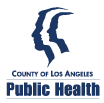PPOR is both a community approach and an analytic framework for investigating and addressing high infant mortality rates in urban settings. It is an effective way for communities to mobilize and prioritize actions based on the best evidence available. The ten most important things you need to know about the Perinatal Periods of Risk Approach for reducing infant mortality in urban communities. PPOR is a six stage approach used to reduce high feto-infant mortality rates in large urban communities. The PPOR Approach allows communities to examine infant mortality using all available information, beginning with vital records data files. PPOR brings community partners together to build consensus, support, and partnership by making complicated issues understandable. The PPOR Approach encourages a community to move from data to appropriate ACTION. PPOR provides a framework for targeting further investigations and actions.
Developed over 25 years and based on extensive and ongoing research, Healthy Family America is relationship-based, culturally respectful, family-centered, and grounded in the parallel process: the relationships built with parents and families serve as a model for the supporting, positive relationships that help families cultivate with their children.
Nurse-Family Partnership helps transform the lives of vulnerable first-time moms and their babies. Through ongoing home visits from registered nurses, low-income, first-time moms receive the care and support they need to have a healthy pregnancy, provide responsible and competent care for their children, and become more economically self-sufficient. From pregnancy until the child turns two years old, Nurse-Family Partnership Nurse Home Visitors form a much-needed, trusting relationship with the first-time moms, instilling confidence and empowering them to achieve a better life for their children – and themselves.
The Parents as Teachers Evidence-Based Home Visiting Model is the comprehensive home-visiting, parent education model used by Parents as Teachers Affiliates. The model provides services to families with children from prenatal through kindergarten. Affiliates follow the essential requirements of the model, which provide minimum expectations for program design, infrastructure, and service delivery. Parents as Teachers provides support for affiliates to meet those requirements as well as further quality standards that represent best practices in the field
This Resource Directory was created for clinicians, administrators, educators, service providers, families, peers, and all who want to learn more about children’s, youth, and family mental health.
Positive youth development (PYD) is a comprehensive framework outlining the supports young people need in order to be successful. PYD emphasizes the importance of focusing on youths’ strengths instead of their risk factors to ensure that all youth grow up to become contributing adults.
The E2SHB 2536 bill directs the Washington State Institute for Public Policy (WSIPP) and the University of Washington Evidence-Based Practice Institute (UW) to publish descriptive definitions and prepare an inventory of evidence-based, research-based, and promising practices and services, and to periodically update the inventory as more practices are identified.
The USPSTF provides reviews of clinical preventative health care services and develops recommendations for primary care clinicians and health systems.
The Community Guide provides systematic reviews of policies and programs along with recommendations and findings about what works to improve public health. Those interested in community-health can use the guide to explore the effectiveness of various health interventions.
Recognized as the benchmark for high quality information about the effectiveness of health care, the Cochrane Collaboration is an international, independent, not-for-profit organization dedicated to making evidence based information about health care readily available worldwide. The organization publishes reviews of primary research in human health care and health policy that investigate the effects of interventions for prevention, treatment and rehabilitation.
Healthy People provides science-based, 10-year national objectives for improving the health of all Americans. Healthy People has established benchmarks and monitored progress over time in order to encourage collaborations across sectors, guide individuals toward making informed health decisions, and to measure the impact of prevention activities.
The ACOG Committees develop evidence based recommendations related to Preconception, Prenatal and Postpartum Health Care.
The AAP addresses important questions regarding pediatric practice and the health and well being of children by developing original research including practice-based network research.
The Community Toolbox links to the web-based resources for exploring promising approaches to promote community health and development.


